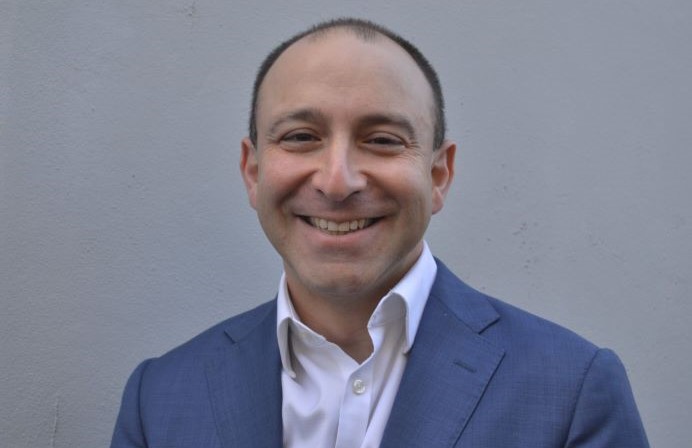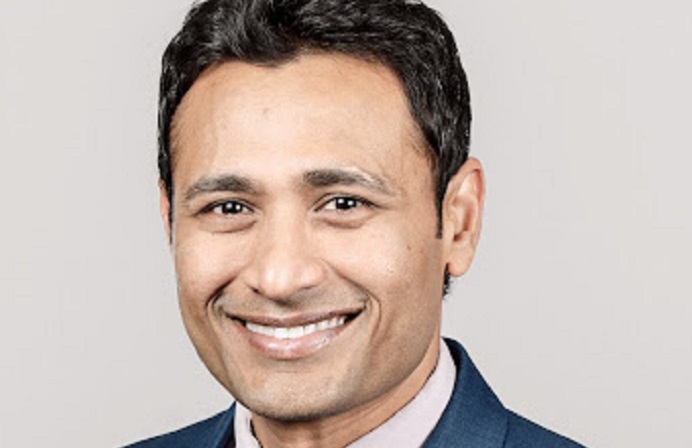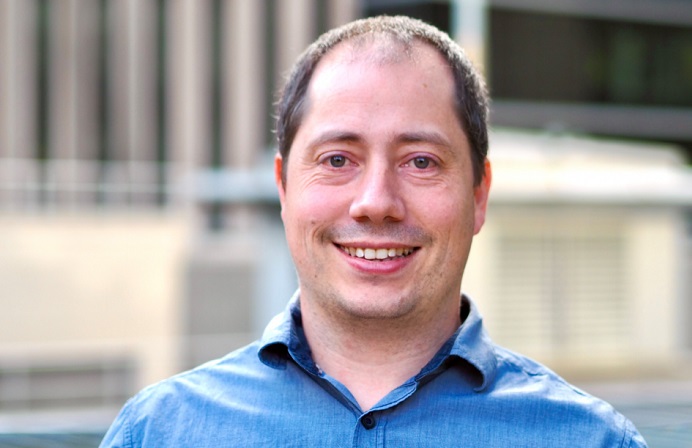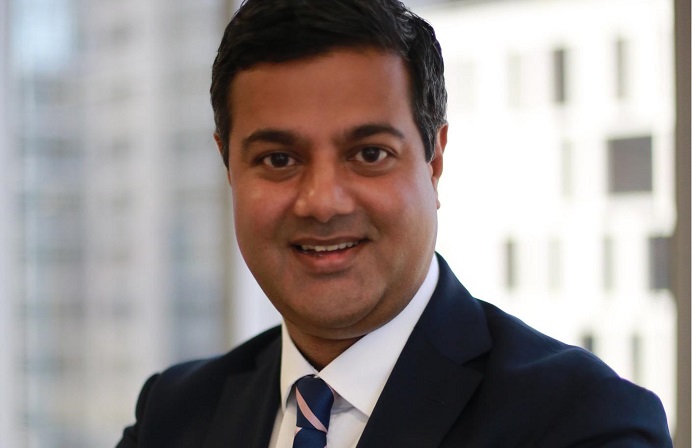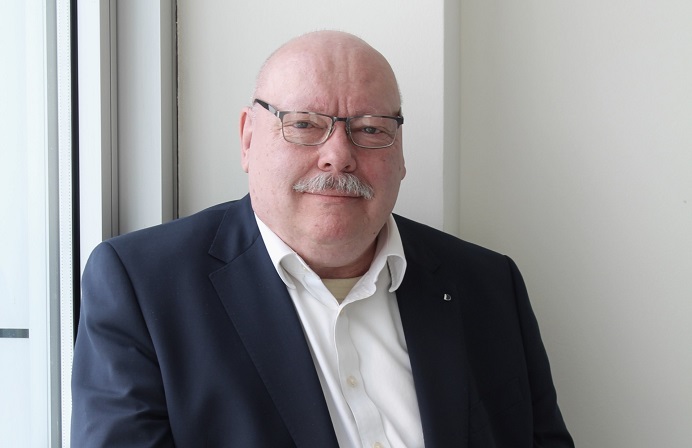
“All customers want to be part of the innovation process and they want to co-create much more with us and be much more involved and ahead of the process. I see that very consistently, whether it’s a customer based in France, or in the UK, in Hong Kong, or in Sydney…”
FST Media: What are your business and digital priorities for the next six months?
Ruault: Everything is a priority with digital because you have to move quickly and efficiently. We have five main priorities – one is to look at our processes and collate our processes with any new technologies we can leverage to optimise our processes to make sure we are efficient and we deliver the processes so they are more timely, they are delivered more efficiently so we are much better optimised. This will be using technology like artificial intelligence (AI), automation tools and machine learning to really optimise processes and deliver them to our customers. Another priority is around the customer experience itself; designing a new plan over the next three months towards 2020 where we look at customers’ behaviours and the customer journey across our security services business as well as other areas of business, whether that’s global markets or cash management. When a customer wants to interact with us through a portal, we are really working on refunctioning the customer journey to make it better. The third aspect is to launch a number of new business models that we have been incubating for the last few months. One is around blockchain, then we are building a new model that is like LinkedIn for fund managers and we would like to launch this business within the next six months, assuming we truly believe in the feasibility of the project itself as we get closer and closer to completing it over the next few months. Another priority is around what we call our employee streams, so making sure our employees truly have the right skill set. For example, we are just (?2:30pm) we are just figuring out how this has to be done in the next few weeks with a training program to make sure we have the right skills to manage our digital transformation. The last stream, which is still a priority, is to work out what we are going to do around data infrastructure. We need to work out what our official requirements are around data and see how we can manage our data more efficiently and to make better use of our data. That’s really all at different levels of maturity, but they are our main priorities around everything.
FST Media: Will the launch of the I&D lab strengthen BNP Paribas’ overall agenda to strengthen digital innovation and strategy?
Ruault: More or less the way we organise within the lab is for us to always be three years ahead, and so we need to prototype and test a few technologies, then once we consider them matured enough, they can be applied to the businesses and their processes and their customers. This is the way we organise ourselves and we have small teams who are dedicated to be well ahead and dive deep into the business so we have quick decisions around the investment, the choice of providers and so on.
FST Media: How flexible is the European market when it comes to adopting innovation comparative to the Asian and Oceanic markets?
Ruault: In Europe the scene we have is very diverse, you have London, Paris, Berlin, etc. and we have different creativity aspects across Europe, but I would say the more I meet customers around this topic, the more the message is quite consistent across continents. It’s really about being more into open banking and accessing data, being able to interact much more simply with us, and I see that very consistently, whether it’s a customer based in France, or in the UK, in Hong Kong, or in Sydney. All customers want to be part of the innovation process and they want to co-create much more with us and be much more involved and ahead of the process. For example, if we want to design and application programming interface (API) to access some of our data they want to co-create it with us. We have teams together to design it, but also for example when we design new screens for our web portal they want to see it. This is very consistent across the continent. Fintech hubs are happening everywhere across all continents and all there is all this creativity and co-working between traditional financial institutions and start-ups.
FST Media: What current in-house projects do you have going at the moment in the blockchain space?
Ruault: It’s very difficult to have a strategy on blockchain because it’s a bit everywhere. Our strategy is to have involvement everywhere, partially in consortiums or open sources forums to participate in marketplace initiatives and activities. We are very active in Australia, working closely with ASX and market bodies on their platform replacement and interface model.
We need to make sure we adjust our priority models to make the most of opportunities and then we have our own internal projects whereby we want to proof test new technologies and potentially launch a business model. A good example is what we do on the private stock market where we have created new blockchain technologies to issues equities, manage primary management issuance of equities and measure the value of an equity from unlisted stocks. Why unlisted stocks? There is a big demand from private equity and start-ups to have much more efficient process and to have a secondary marketplace where they could deal with unlisted securities. It’s a project that we have been working on for eight months, we have real team dedicated to it and we are now validating with our management, the level investment, and potentially creating a new group for this business.
FST Media: How can AI assist with data management and visualisation?
Ruault: It’s something we have to explore, especially for a banking institution like us that holds a lot of data. I think this is a key asset that we have and we can utilise these technologies to enable our employees and customer services team to access all the data we hold in the organisation much more efficiently. We have customer teams advising customers on tax eligibility topics, for investors looking to invest in another country to know what types of documentations they need and what type of taxation they will be applicable for for their investment. All of this comes from the huge amount of data which we have and leveraging new technologies. Another example is on our investment compliance processes. We’ve been working with a regtech which was already knowledgeable on investment compliance and we have worked for a year to prototype their solution towards our business and it’s a combination of Cognitive and Machine Learning solutions that could optimise a lot of processes and we have taken an investment into the company. We definitely have to adopt this kind of technology, both in terms of enhancing customer experience more quickly and also enhancing our workforce with new tools and potentially replacing some legacy platforms.
FST Media: Where will traditional banking be in five years?
Ruault: Banking has to adopt new technologies immediately to boost their efficiency and customer experiences and the more I work on digitally, I truly believe that banks have two key assets; one is data, we have years of knowledge of our customers, and the other is trust. There is trust around all the cyber threats, the fact that we have a big capital as well which is a key asset which we should leverage because banks are even more pertinent for the future.
FST Media: What does it mean to stay ‘agile’ with digital initiatives?
Ruault: We are less agile than start-ups who can work on the cloud and design things very quickly, but that is a good reason for us to be agile. To me, agile means the ability to put things to market very quickly, and very efficiently, that are truly designed around data for good customer experience. I think the trend around start-ups is also to start from scratch and from the customer experience. We have to learn from this, and this is what we are really trying to do to force our teams to really start from the customer experience when we are designing. We have to learn from this, but also respect a number of rules around Cybersecurity and data protection which makes us a bit less agile than start-ups, but for good reasons. We can’t compromise this trust aspect, it’s a key asset that banks have so even though we are that bit less agile, we have the trust with us.
FST Media: Where do you look for emerging technology trends?
Ruault: We look at both competitors and fintechs. With competitors, there’s quite good community sharing amongst us and we have an open-dialogue with many of our competitors on what types of technologies are trending and so so far there is an open-dialogue, but maybe it will become more competitive going forward. We try to look at everything and that is why we cannot only be focused on the open markets. We are trying to decentralise our team a bit to make sure we have a connection with the equity system in Sydney, in Hong Kong, and in Singapore, and that we work with incubators and lobs everywhere including on the US west coast and in New York because we need to be ahead and look at the fintechs and providers.
FST Media: How do you measure the success of programs at BNP Paribas?
Ruault: We have designed a 2020 + plan around digital transformation which looks at our project investment and our company objectives, our financial objectives and then our plans around our new avenues into new business models, and their efficiencies. We also measure a number of criteria around satisfaction. We have a yearly assessment of employee satisfaction to which we have added a number of criteria around digital. Same with our customers, we want to measure our customers’ satisfaction so we can see how we were operating before and now. This is not easy to do, but at least we have some objectives that are concrete.
FST Media: How do you spend your free time?
Ruault: I spend time with family and watch rugby. I also do a lot of readings because there are so many things to do that are part of my wider work like reading certain things that you don’t have time to read during the week.

